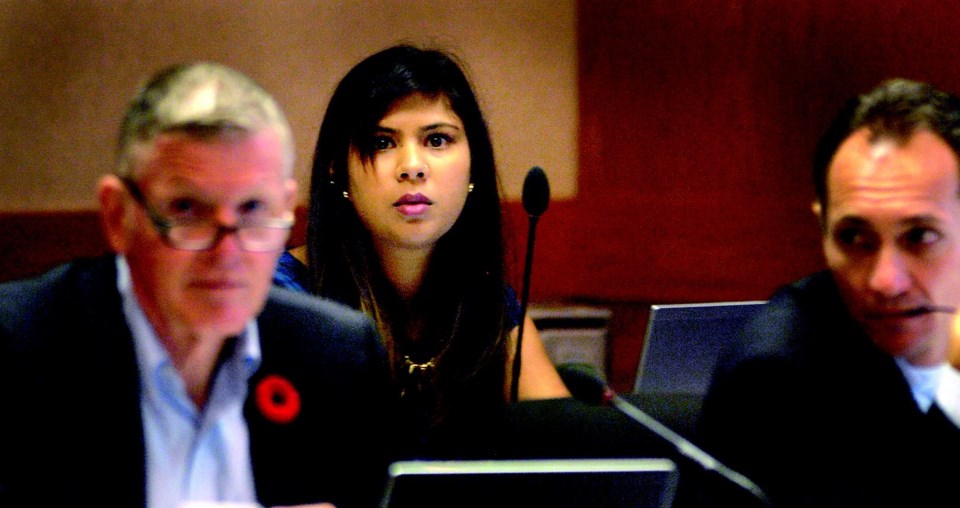The record shows 29 Northern Gateway witnesses have spoken during the National Energy Board hearings in Prince George over the past month, but without the team of support staff behind them, the answers wouldn't come so quickly.
Yeasmin Alfaruq is the face of the "back row" staff, constantly on her feet relaying information the witnesses need to answer the questions in a prompt manner. Using a pair of tablet computers, she provides references to evidence or information requests which are already on the record.
Alfaruq has loaded her two tablets with 13 gigabytes of information which includes pretty much anything that's been entered as evidence during the proceedings looking into the environmental assessment of the proposed oilsands to Kitimat pipeline.
Her job is to anticipate which documents are going to be referred to by interveners or witnesses, pull them up on the tablet and deliver it to the appropriate witness.
"If we're talking about a specific issue, I'm trying to guess where the intervener is going to go, which way he's heading towards and try to find [information requests] and application excerpts that will help the witnesses point to the answers we've already responded to," she said in an interview during the lunch break of Monday's session at the Ramada.
An engineer by trade, Alfaruq is a generalist, expected to know bits about all aspects of the pipeline application. Some other members of the back row are specialists in certain areas of the project and are there to help out if the witnesses aren't familiar with the details of a certain question. In one instance during the first witness panel last month Northern Gateway employee Maury Porter was called up from the back row and sworn in as a witness for a specific line of questioning.
The support staff begin their day with a morning meeting with the witnesses where they go over the interveners scheduled to appear and try to figure out what types of questions are likely to come up and what documentation will be needed to support the answers.
The group meets sparingly in the breaks during the day, but conduct a full debrief in the evening.
"We talk about what went well, what didn't go well, what we can improve," Alfaruq said. "Things like body language, are we communicating well as a group? Are we huddling enough? Are we being too aggressive? Are we being too nice?"
The evening hours are spent going over the transcript to ensure it's accurate and reviewing any aids to cross-examination provided by interveners for the next day's session.
It has taken months of preparation to get everyone involved in the process from Northern Gateway's perspective ready for the final hearings. Even with all those hours poring over documents, Alfaruq said the nerves do creep in from time to time.
"One of my biggest fears coming into this was, someone coming up to me and saying, 'Where's that [information request], where we said this, this and this,' and I'm like, 'Ahh, I can't find it, I can't find it,'" she said. "It hasn't happened yet, so that's good."



